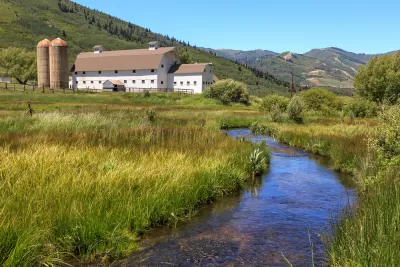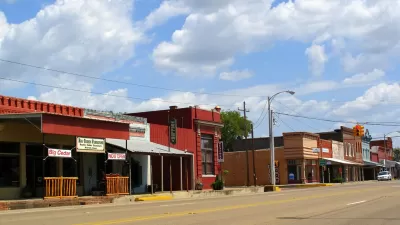The pitting of cities and rural communities against one another is the wrong approach. Instead, policies that help cities thrive will benefit rural areas in the long run.

Nathan Arnosti and Amy Liu take a closer look at the relationship between urban and rural areas. They argue for a move beyond the idea of the urban-rural divide, a concept supporting the notion that bolstering cities means that rural communities lose out.
"Rather than see rural America as existing in isolation from urban centers, or characterize the two sets of communities as locked in a zero-sum game for economic growth, we should recognize that rural America’s economic success is linked with that of America’s cities," write Arnosti and Liu.
The well-being of rural areas is influenced by cities in several ways, they say. Rural areas benefit when cities provide more state revenue than they use, and states with large urban populations are less dependent on federal investments. In addition, cities provide rural communities and residents with access to economic, labor, and educational opportunities.
Arnosti and Liu say that strengthening the links between urban and rural areas is important. "In fact, one of the best ways to help rural America may involve helping cities: supporting a distributed network of economically vibrant small and mid-sized cities across the United States."
They advocate for economic planning at the local level—with a focus on industry clustering rather than efforts to attract particular large companies. In addition, they encourage policies that will reduce the economic gaps between urban and rural areas, including educational and training programs that prepare workers for the modern economy.
FULL STORY: Why rural America needs cities

Maui's Vacation Rental Debate Turns Ugly
Verbal attacks, misinformation campaigns and fistfights plague a high-stakes debate to convert thousands of vacation rentals into long-term housing.

Planetizen Federal Action Tracker
A weekly monitor of how Trump’s orders and actions are impacting planners and planning in America.

San Francisco Suspends Traffic Calming Amidst Record Deaths
Citing “a challenging fiscal landscape,” the city will cease the program on the heels of 42 traffic deaths, including 24 pedestrians.

Defunct Pittsburgh Power Plant to Become Residential Tower
A decommissioned steam heat plant will be redeveloped into almost 100 affordable housing units.

Trump Prompts Restructuring of Transportation Research Board in “Unprecedented Overreach”
The TRB has eliminated more than half of its committees including those focused on climate, equity, and cities.

Amtrak Rolls Out New Orleans to Alabama “Mardi Gras” Train
The new service will operate morning and evening departures between Mobile and New Orleans.
Urban Design for Planners 1: Software Tools
This six-course series explores essential urban design concepts using open source software and equips planners with the tools they need to participate fully in the urban design process.
Planning for Universal Design
Learn the tools for implementing Universal Design in planning regulations.
Heyer Gruel & Associates PA
JM Goldson LLC
Custer County Colorado
City of Camden Redevelopment Agency
City of Astoria
Transportation Research & Education Center (TREC) at Portland State University
Jefferson Parish Government
Camden Redevelopment Agency
City of Claremont





























